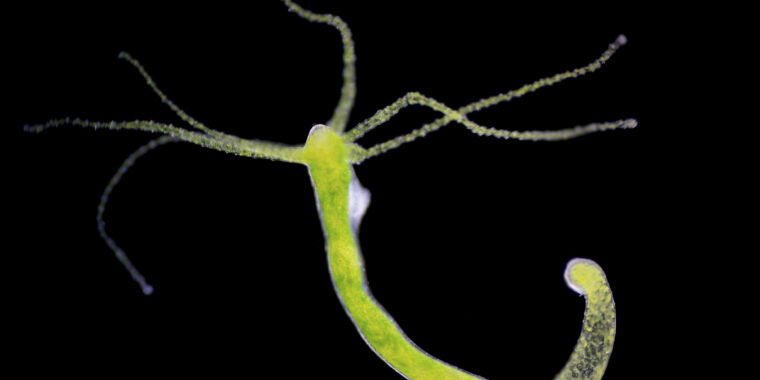
Researchers Eliminate Matrix Multiplication in LLM...
Researchers have made a groundbreaking discovery in the field of artificial intelligence by eliminat...
Read more
Source: https://arstechnica.com/science/2024/06/how-do-brainless-creatures-control-their-appetites/
The article explores how simple creatures, like jellyfish, lacking centralized brains, manage their appetites and food intake. Despite their lack of brains, these animals have evolved complex mechanisms to regulate their feeding behavior. The article highlights the research focusing on jellyfish, specifically the moon jellyfish. Researchers have observed that these jellyfish exhibit a fascinating 'hunger meter', which is actually a complex interplay of chemical signals. When the jellyfish is hungry, its body releases a specific chemical signal. This signal triggers a response in the jellyfish's 'mouth arms' (oral arms), which are responsible for capturing food. These arms become longer and more sensitive, increasing the jellyfish's chances of finding and capturing prey. However, as the jellyfish consumes food and becomes satiated, the chemical signal diminishes, causing the mouth arms to shorten and become less sensitive, effectively curbing further feeding. This system exemplifies how even brainless creatures can manage their appetites using intricate chemical signaling networks within their bodies. The article further delves into the potential implications of this research for understanding how complex animals, including humans, control their appetites. It emphasizes the potential of studying the simpler systems found in brainless creatures to uncover the fundamental mechanisms behind hunger regulation in all living organisms. Overall, the article provides an insightful overview of how brainless creatures can control their appetites through sophisticated chemical signaling mechanisms, highlighting the potential for further exploration into the complexities of hunger and appetite regulation across the animal kingdom.
Summary
"The research on jellyfish appetite control showcases that even simple organisms without brains can employ complex chemical signaling networks to regulate their food intake. This study has the potential to reveal fundamental mechanisms behind hunger regulation, impacting our understanding of appetite control in both simple and complex organisms."
Updated at: 06.16.2024